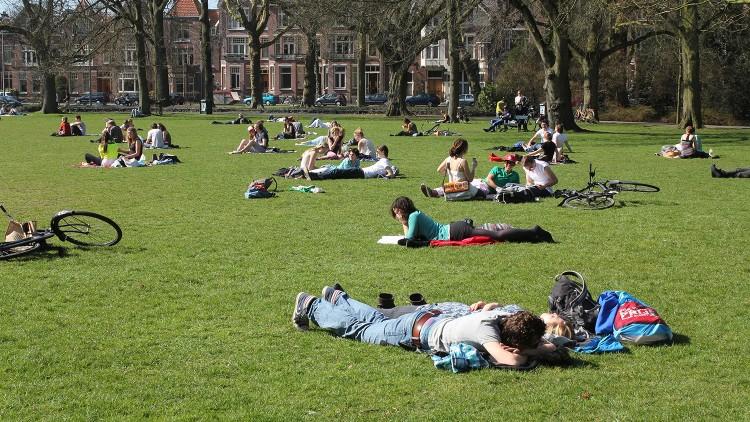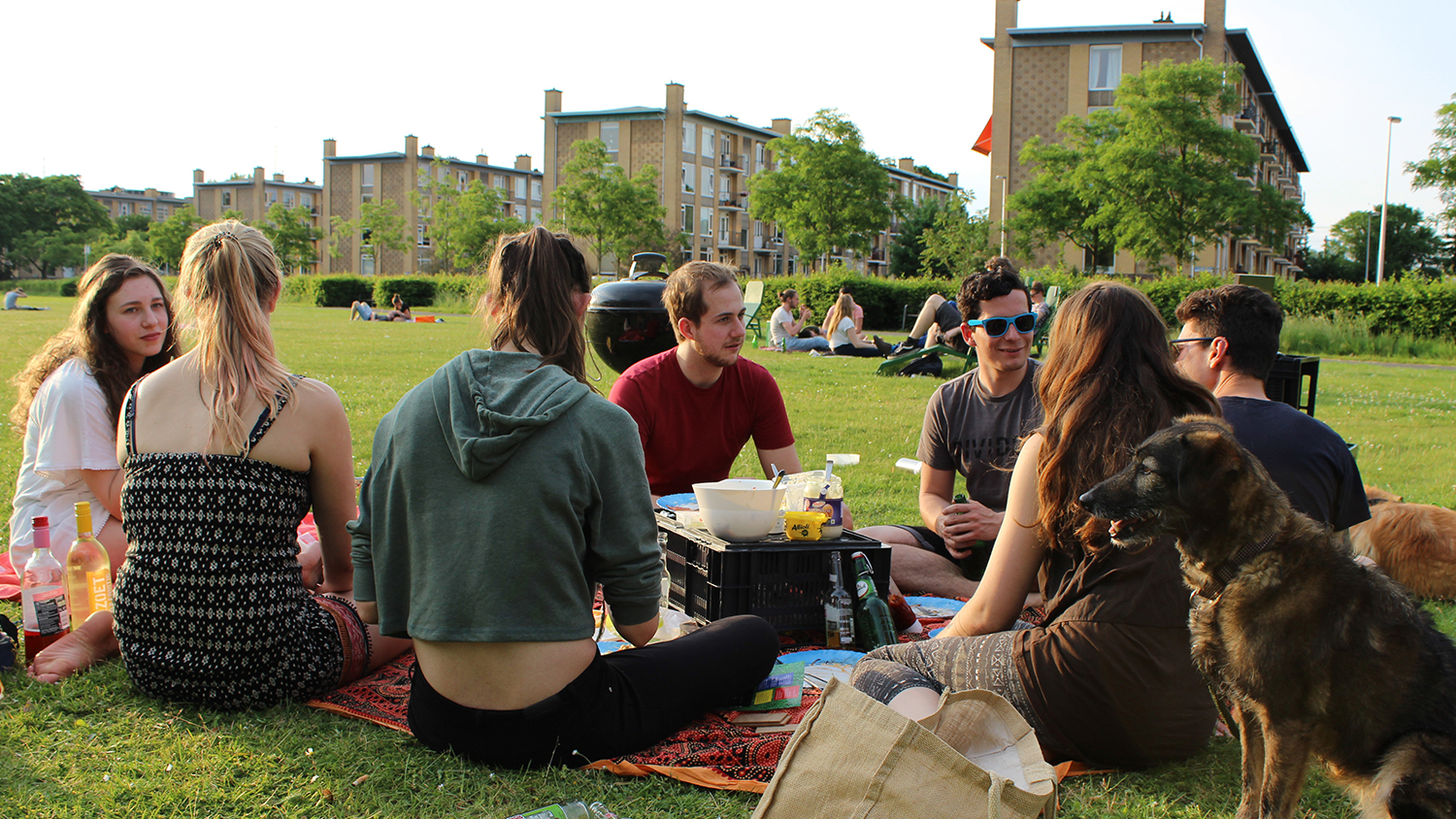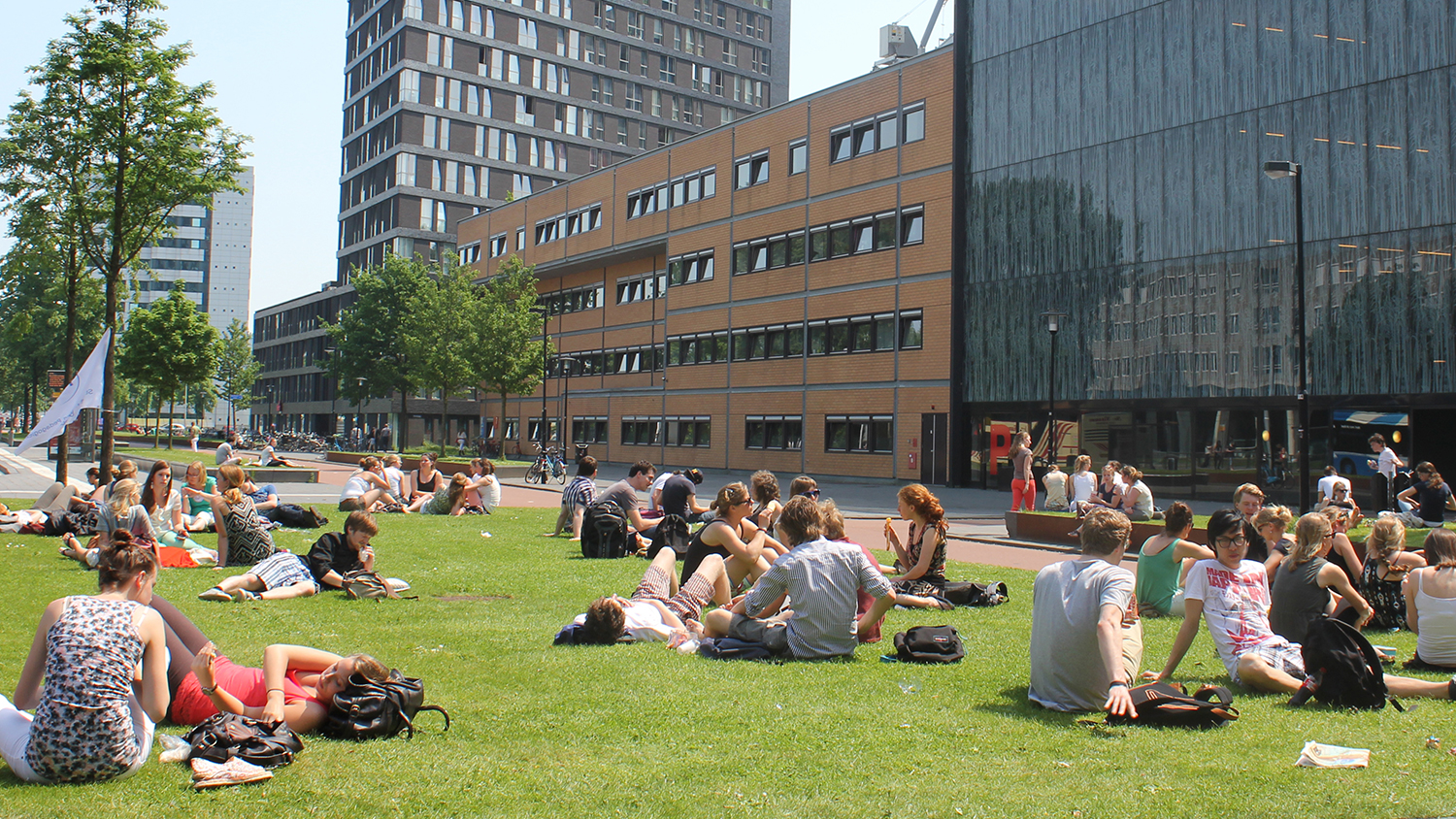Home stretch to summer: going for a drink or studying hard?

The Dutch saying, ‘the last mile is the longest’, is one students are all too familiar with. They’ve worked hard in the past few months, and they’re tired. In combination with the beautiful weather, it’s easy for students to let that lead to choosing the beach, a terrace, or park, instead of class. Emma van Oort, sophomore student of Pedagogy: “At the start of an academic year, my motivation’s clearly a lot higher than at the end of it. In the winter months, I didn’t mind as much to have to stay indoors and study. My friends and I don’t go out as much. There’s cold outside, the days are short, it’s not really an attractive idea to leave the house. Studying on the couch, blanket covering my legs, isn’t hard to do then. But between April and July, I’d much rather spend the day hanging around at the beach, grabbing a drink at a terrace at night…even though this period is the hardest one, in terms of how much studying I have to do.”
Maths teacher David Baneke sees the stress grow amongst his students in the third and fourth periods. “It’s my impression that they often bite off a little more than they can chew, and they demand so much of themselves. Plus, they want to enjoy the early days of summer, of course. That combination can lead to so much stress. It’s my experience that you have to slow students down as much as you have to motivate them.”

End-of-year fatigue
The decreasing motivation in the fourth period is a result of the nice weather, says Matty Kleine, study advisor at the History department. But, she says, it’s not the only reason: “The terrace in the Utrecht city centre is absolutely attractive. But the most important cause of decreased study motivation is fatigue. This is definitely the case in students who’ve already been less motivated or concentrated due to personal circumstances.”
This end-of-year fatigue amongst students is also something Biology teacher Mariet Hefting has noticed. “I’m teaching a first-year class now, and I’m noticing such a drop in concentration. I think it’s mostly the freshmen who suffer from this fatigue at the end of the academic year. It’s a huge step to go from high school to university, and many students are eagerly looking forward to summer break.”
Frank Barten, IT student, recognizes Hefting’s scenario: “As yet another academic year draws to a close, I’m absolutely exhausted. And when you finally pull yourself together to start studying, suddenly the weather turns awfully hot. Too often, I choose to go outside to ‘relax’ with friends. Highly ill-advised.”

Piling up of difficult moments
Aside from studying individually, the number of students who show up to class or workgroups also decreases in the last period of the academic year. Boyd Berends, teacher at Veterinary Science, had an average of three students present in his workgroup classes in the past few weeks with nice weather: “If fewer than five people show up, I don’t have to continue teaching. I did so anyway, because those two or three students did take the effort to come.” The student presence in this period of the year, Berends says, can’t only be blamed on the positive sides of the nice weather: “Terraces, swimming pools, and beaches, obviously have a great appeal. But hot weather can also be physically exhausting. Hot weather doesn’t exactly help you get a good night’s sleep, for example. Lack of sleep also influences students’ concentration.”
In a sleep study conducted by the University of Groningen, the effect of less sleep was studied. It showed that sleeping five hours less than usual worsens both your learning capacity and your memory. For students, that means the heat leads to a piling up of problems: they’re tired from working hard all year, they’re not sleeping well because of the heat, which also lowers their concentration, which also leads to giving into temptations more easily.
Third-year Psychology student Suzan Cangir struggles a lot with weakened motivation and concentration in her current semester: “In my first and second years, I barely did anything for my studies after April. I just wanted to go outside, and not have to sit indoors and study. I’m working on my thesis now, and I absolutely have to finish it. Still, staying indoors and sit behind my laptop when it’s 30 degrees outdoors, is a tough choice to make every time.”
Tips to hang in there
How do you get through those last few periods? If you structure your plans, the problems are manageable. First of all, you need to make sure you get enough sleep. If you sleep well, your concentration is higher, which makes studying a lot easier to do. There’s a few aides to help you sleep well despite the heat, according to the Sleep Study done by Het Laatste Nieuws: don’t sleep in satin sheets, as they don’t let any air through. Put your bedsheets in the fridge for a few minutes right before you go to bed. Sleep downstairs: hot air, of course, goes up, so try to sleep as low as possible in your house. Put a jug filled with cold water in your bed. Take a cold shower before going to bed. And turn off all electronics.
As for motivation for studying, every unmotivated student is advised to visit their study advisors: “A conversation with your study advisor can be very useful,” says Matty Kleine, study advisor at the History Department. “I’m seeing older students come in of their own choice, but I often have to call for freshmen myself. My advice to them is to come in more often, and sooner. You can make a really good planning together, which helps you get through your studies, even in the last, hottest period of the year.”

Translation: Indra Spronk